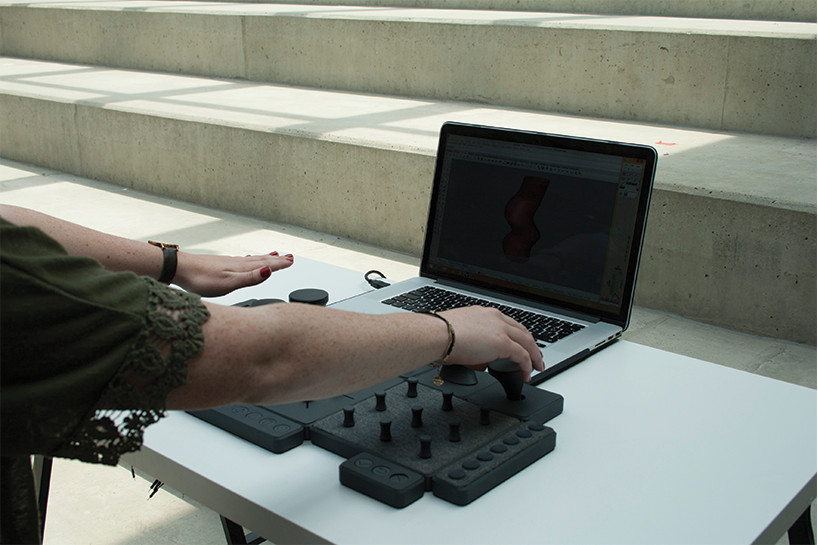
Simon van pottelbergh explores alternative interfaces for 3d printing with tac. Tiles
- Select a language for the TTS:
- UK English Female
- UK English Male
- US English Female
- US English Male
- Australian Female
- Australian Male
- Language selected: (auto detect) - EN
Play all audios:
DIGITAL FABRICATION MACHINES, SUCH AS 3D PRINTERS, ARE TOOLS THAT HELP DESIGNERS WORK AND CREATE MODELS VERY ACCURATELY. the software used to create the 3D models however is often quite
complex and requires a lot of time. the difficulty behind this is due to the software’s graphical user interface. this kind of interface creates a barrier between the user and computer. to
solve this problem, a physical interface has been created that allows designers to create 3D models in a matter of minutes. user with interface 1 BELGIUM DESIGNER SIMON VAN POTTELBERGH HAS
DEVELOPED ‘TAC.TILES’, AN INTERFACE MADE OUT OF 15 MODULES. these modules are able to control the basic geometry, shape and parameters through physical manipulation of the buttons. the
different modules allow the user to perform actions like pulling, pushing, twisting and bending. through the performance of these actions the shape of the 3D model can be controlled.
interface with screen ‘TAC.TILES’ IS A MODULAR PRODUCT FOR TWO MAIN REASONS. first, because users don’t need all 15 modules at all times. by only assembling those that are needed, a clean
interface is created. the second reason is to allow users to choose a position arrangement of different modules, allowing the possibility to have a control panel purely based on personal
preference. each module is equipped with a magnetic USB port. this way the modules can easily snap together, not only connecting the modules physically, but also connecting digitally with
each other and the computer. assembled modules 1 THIS PHYSICAL INTERFACE ALLOWS USERS TO CREATE 3D MODELS IN A FAST AND INTUITIVE WAY. the main purpose is form finding, a stage at the
beginning of a design process where various shapes are generated in a short period of time. the interface is therefore used to create abstract figures and not ready yet to use for models or
products. user with interface 2 magnetic connection user with interface 3 assembled modules 2 assembled modules 3 assembled modules 4 assembled modules 5 user with interface 4 interface
without screen _designboom has received this project from our ‘__DIY submissions__‘ feature, where we welcome our readers to submit their own work for publication. see more project
submissions from our readers __here._ _edited by: apostolos costarangos | designboom_